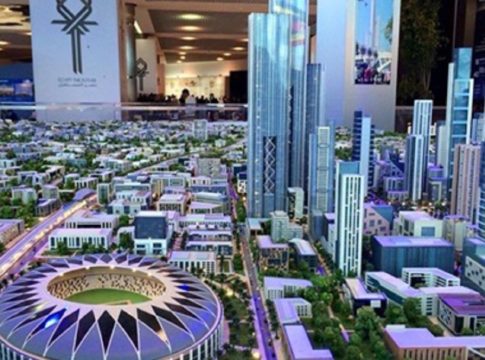President Abdel Fattah El-Sisi took office of a country with a battered economy and a deteriorating security situation. His presidency came after 4 years of massive unrest that started in 2011 and resulted in wearying grip of central government, shut downs of thousands of factories and continuous labour strikes.
The country suffered poor infrastructural performance to the extent that Egyptians were subject to power cuts for averages of 8 hours a day, fear and lawlessness spread due to continuous attacks on national police during the unrests. The brotherhood had also pledged to burn the country if they were removed from power. The following are some of the headlines that described the situation in 2013: “Egypt ‘suffering worst economic crisis since 1930s’” The Guardian, May 2013, “Egypt’s Economic Crisis: How to Help Cairo Help Itself” The Washington Post, March 2013, “Egypt crisis: Deaths as Cairo violence resumes” BBC, August 2013, “As Crisis Deepens in Egypt After Ruling on Riot, Calls for a Military Coup” New York Times, March 2013.
El-Sisi stepped in during these conditions as a candidate for presidency saying: “From the start, I want to be honest with you, with my country and with myself, as I have always been. We Egyptians face an extremely difficult task and a high-cost mission. The economic, social, political and security situation in Egypt – whether before the 25 January [2011] revolution or after it until the 30 June [2013] revolution – has reached a limit that requires an honest and brave confrontation of challenges.
“We must be honest with ourselves. Our country is facing huge challenges while our economy is weak. Millions of our youth are suffering from unemployment. This cannot be acceptable. Millions of Egyptians are sick and cannot get treatment. This is also unacceptable. Egypt is rich with its resources and people, but it relies on grants and aid. This is not acceptable, either. Egyptians deserve to lead a better life, full of dignity, security and freedom. They deserve to have a job, food, education, medical treatment and affordable homes. This should be available to all Egyptians.” BBC, March 2013.
He was elected president and the question is: was his mandate up to the challenges he promised to face with the support of the Egyptian people?
Let’s take a look at the numbers; Egypt’s cash reserves climbed from 16 Billion US dollars to over 40 billion US dollars during his mandate, un-employment decreased from 13.4% to 11.9%. Foreign investments flow increased by 14% in the fiscal year of 2016-2017, 245,000 residential units for middle-class citizens were built, 7000 kilometers of roads and almost 200 bridges established, the government worked to double power stations in Egypt to sustain an estimated 25000 megawatts, provided treatment to 1.4 million patients of Hepatitis C virus.
13 new cities besides the establishment of Egypt’s administrative capital are currently under construction, Egypt reached an annual growth rate of 4.5% from 2.2% according to IMF as reported by Reuters, Egypt also narrowed the deficit in the nation’s current account, which includes trade in goods and services as well as financial transfers 64% to $3.4 billion from July to December 2017 (Bloomberg). The inflation that occurred after the government applied harsh economic reforms from 30% to 14.4% (Bloomberg).
There is no democracy in civil wars but that doesn’t mean that nations’ crises cannot produce one. At the time of crisis, unity, determination and solidarity take priority over diversity as long as this determination is to achieve a consented upon target. This target in this chapter of the Egyptian history is rebuilding a powerful state that can revive its economy and maintain its security. Egypt has not gone into civil war but it surely suffered the aftermath of one. Egyptians have prioritised unity over diversity by their ballots turnouts despite the lack of competition.


